Canada is in the fortunate position of sharing what some have described as the largest, friendliest border in the world with the United States. The majority of provinces in the country share their southern border with the USA, and because of the friendly relations between the two countries, and a lot of overlap in language and culture, this geographical and cultural proximity has made travel between the countries comparatively easy.
Most people traveling to the United States will do so either by car or by plane. If you make the trip by car, then you will eventually end up at one of the many border points between the two countries, where our roads and highways continue into the US. If you choose to travel by plane, then you will either start your journey—or eventually transfer to—an International airport, where the Customs & Border Protection (CBP) will be on hand to process Canadian travelers. This is the same as they would if you arrived at a physical border in a car or other vehicle.
Standard Procedures
In the past, all you required to cross the border from Canada to the US was a driver’s license. For residents of towns on the border, even this might not have been required if the CBP was familiar with you, and knew you regularly conducted business in the US.
Since the September 11th attacks in 2001, and, more recently with the sweeping changes in immigration and border policy that have come with America’s latest president, Donald Trump, there’s been a lot of tightening up. Crossing the border has been a bit more strict, and no Canadian is advised to attempt entering the USA without a passport, the same as traveling to countries beyond the North American continent.
For most Canadians, this is the extent of all you need in order to cross the border. As long as you have your passport and are cooperative with the CBP should they ask you questions about your visit, or want to search your baggage or vehicle, you will have little difficulty entering the USA. It may take some time, depending on how many people are ahead of you, and whether there are any disputes, but your actual chances of entering are very good.
However, for some people, things become a bit more complicated if a criminal record—or even any mention of an arrest—is available for viewing from the Canadian police records. But only if the CBP decides to check.
A Roll of the Dice
The CBP has complete, 100% legal access to the Canadian criminal record database, so they can look up any person that arrives at the border or airport and conduct a background check. This is in no way illegal; they have full rights to do this.
However, they do not exercise this right with every single visitor, as this would considerably pad out the amount of time it takes to process foreign visitors. This means that every time you decide to visit the USA, there’s a chance that you may be selected for a background check. Some people are less likely to have a background check conducted, such as the elderly.
However, if you have a criminal record or even a record of an arrest, this will be “flagged” in a background check, and that information will be immediately downloaded to the CBP’s own database. That information will now be independent of whatever is found in the Canadian records and will remain the same, regardless of what happens in the Canadian database system in the future
What You Can Do
The CBP can—and does—bar entry to visitors with a criminal record. You may have one, but have previously been granted entry, but that simply means that so far, you haven’t been selected for a background check. If you ever are, you will not be allowed to enter the US.
People with criminal records have two options. If you have yet to have a background check conducted, but have a criminal record, you can get a Record Suspension here in Canada. This clears your record entirely from any future background checks the CBP may conduct on the Canadian criminal database.
If you have already been barred from entry because your record was found in a background check, you need to take the next step, which is a US Entry Waiver. This is a separate document that must be presented to the CBP every time you are processed for immigration.
If you don’t have a criminal record, you can always cross the border with relative ease. If you do have a record, contact us. We can help you with the steps necessary for either a Record Suspension or a US Entry Waiver.


